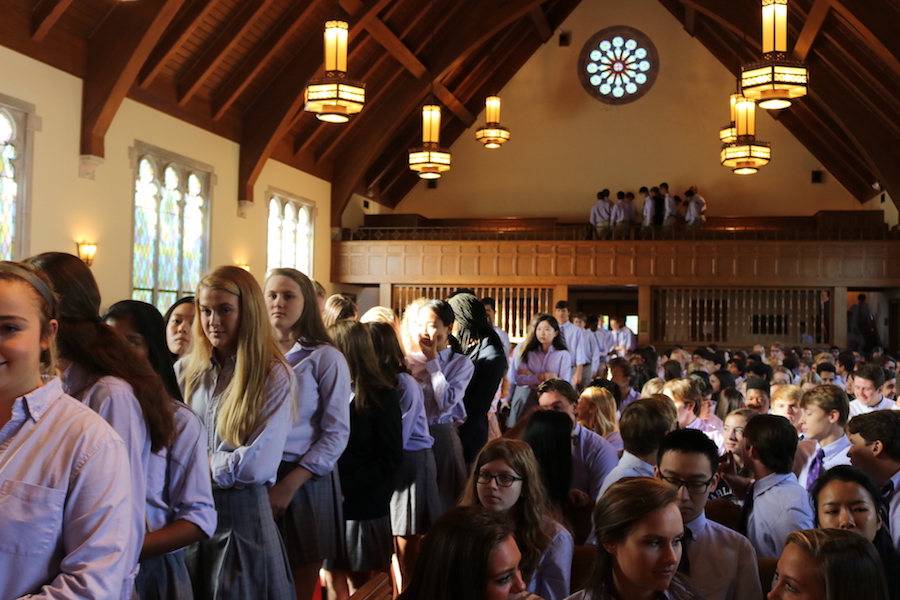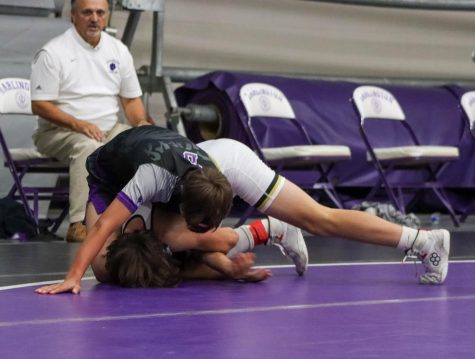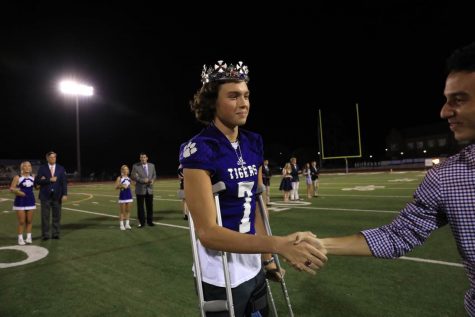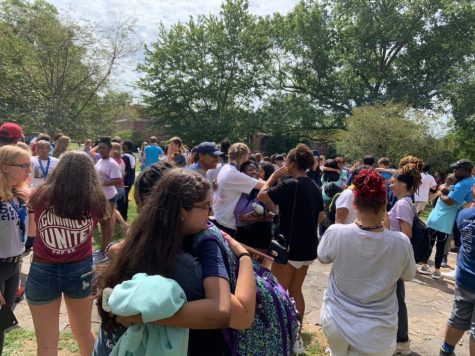The Honor Code
At the beginning of every year, new students and faculty are required to sign the honor book, pledging to follow the honor code. The Honor Code was founded by students in 1915, and to this day, the pledge states “I will not lie, cheat, steal or tolerate those who do.”
The Honor Code creates an atmosphere of trust around the Darlington community. Students and teachers can trust each other to act with integrity at all times.
“The basis of the Honor Code is trust, that students and teachers all trust each other, and the benefit of the Honor Code is that you can leave your backpack, your wallet or your phone somewhere and feel confident that nobody is going to take it. A teacher can leave the room during a test and can be confident that nobody is going to cheat because students won’t let other students cheat. That’s how the Honor Code is supposed to operate; it has always been run by the students. There has never been a faculty honor committee, it has been a student honor council since the beginning,” Moss said.
Throughout all his years at Darlington, Moss has seen how the Honor Code has changed over time. Ever since the 1980s, the annual signing of Honor Book ceremony has always been one highlight of the school year where every new faculty member and student will sign their name as a way to prove that they acknowledge the meaning and the importance of the Honor Code in the school’s community.
“When I was a student, there were no signs posted in all the classrooms with the pledge on it, but every single student was required to write the pledge by hand on every test, every quiz or paper. So everybody memorizes it. And now, we got the honor pledge in every classroom but most students don’t write the pledge which strike me a lot. I think it’s important for students to write the pledge because that basically said to the teacher ‘You can trust me; this is my work.’ And I think every teacher ought to require that,” Moss said.
He understands the basis and the importance of Honor Code even more due to his personal past experience in front of the Honor Council.
“I actually went before the Honor Council once when I was a freshman. There were some cheating going on in our math class, and the Honor Council was determined to get to the bottom of it, so they call every single one of us in that class into the meeting one at a time and said ‘Have you been cheating?’ and ‘ Have you seen anybody else been cheating?’ They didn’t ask us to turn in any names, but they did ask us if we saw anybody else cheating,” Moss said. “So that made a big impression on me as a freshman at Darlington. I think it’s just essential for people being able to trust each other. I think that [writing the pledge by hand as a reminder] really helps keep people honest, because you have to think about it.”
Finally, to all the new students who are trying to understand the Honor Code and how we uphold it everyday. Moss’s advice emphasizes why a good understanding of the code would make students’ life better.
“Go to any member of the Honor Council or go to any teacher and ask the question that you have. Don’t be afraid. For instance, plagiarism is a big issue in most schools and it is something students just do by accident,” Moss said. “And these days with all online resources, it so easy to make that kind of mistake. The thing to do is to talk with your teacher and say ‘If I do this, is this plagiarism?’ or ‘Can I use this in my paper?’. Just ask the questions because the honor code is supposed to be a teachable system and we learn from it. The sad part about the honor code is when people don’t read it, don’t think about it, don’t ask questions or don’t pay attention to it and then one day they found themselves in front of the honor council. And they could have avoided it.”












